
Find Help
More Items From Ergsy search
-

What research is being done on Huntington's disease?
Relevance: 100%
-
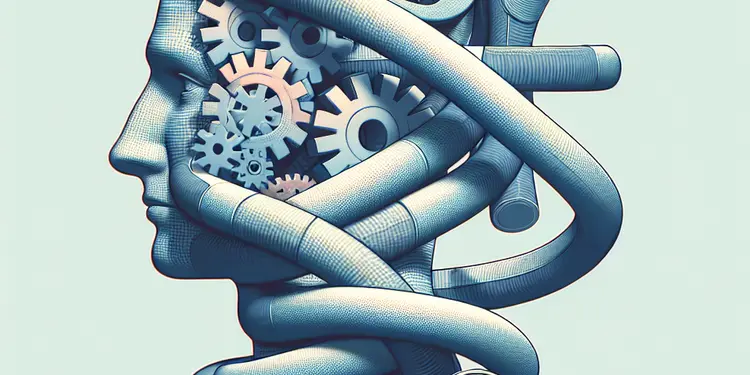
Is Huntington's disease fatal?
Relevance: 83%
-
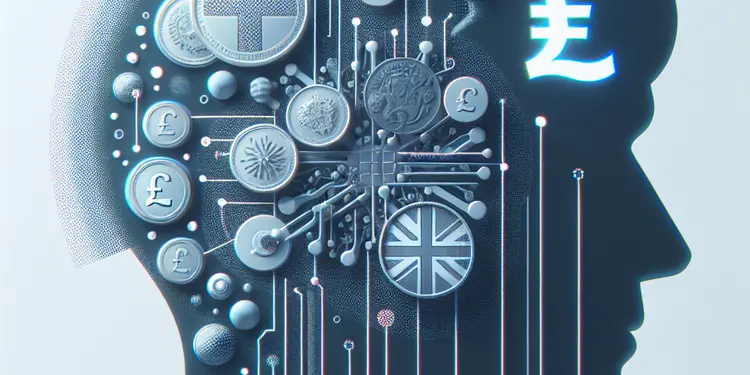
Can Huntington's disease be cured?
Relevance: 82%
-
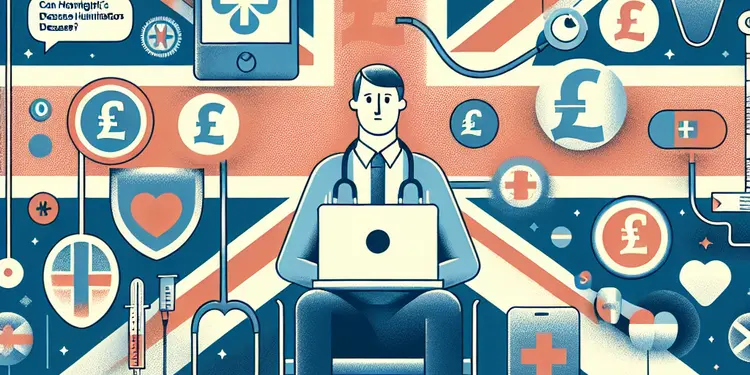
Can Huntington's disease be prevented?
Relevance: 81%
-
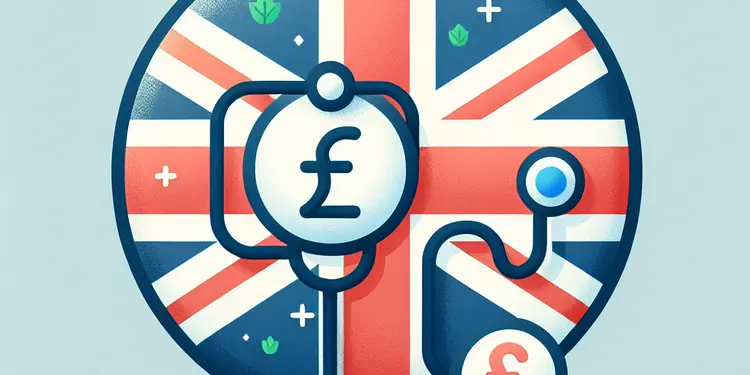
What is Huntington's disease?
Relevance: 80%
-
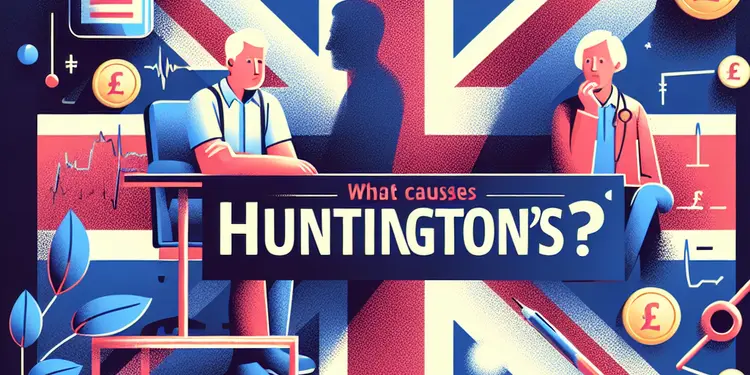
What causes Huntington's disease?
Relevance: 78%
-
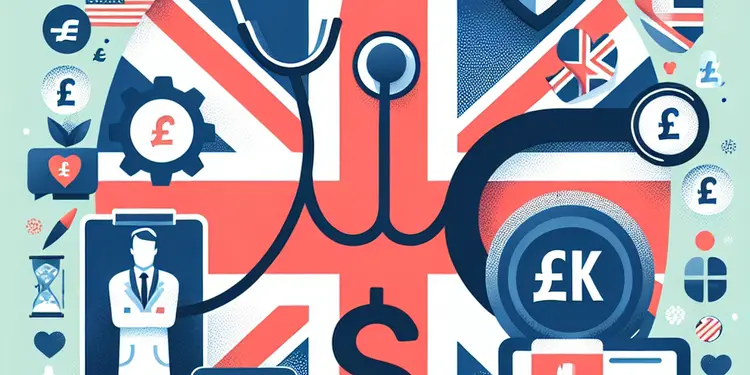
How is Huntington's disease diagnosed?
Relevance: 74%
-
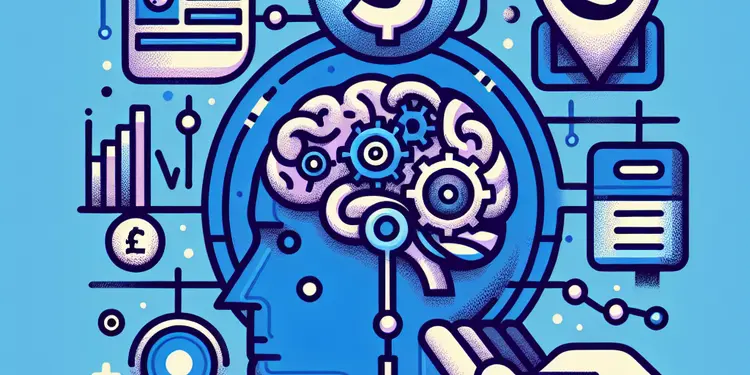
What are the symptoms of Huntington's disease?
Relevance: 73%
-

How does Huntington's disease affect movement?
Relevance: 72%
-
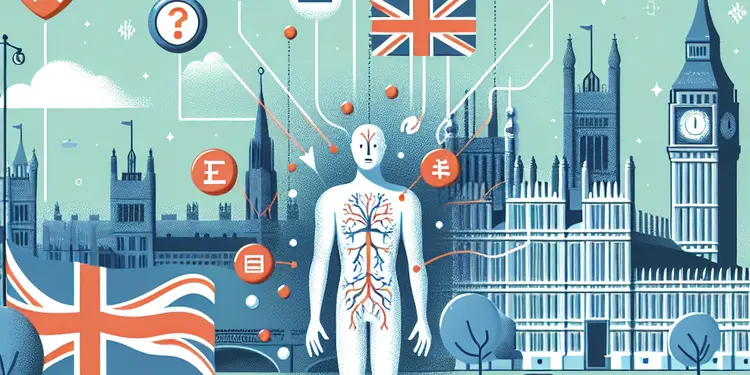
How does Huntington's disease affect emotions?
Relevance: 72%
-
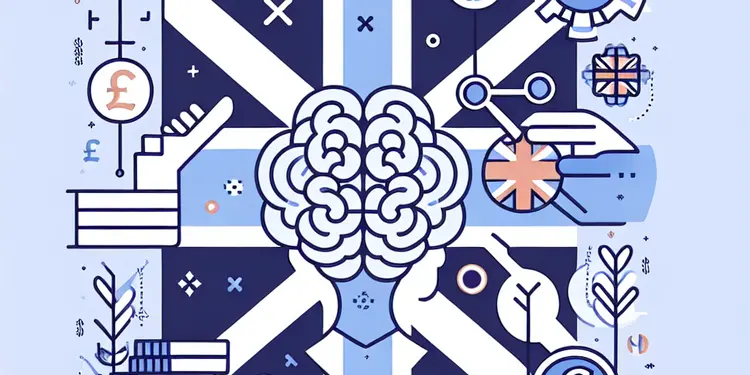
How does Huntington's disease affect cognition?
Relevance: 71%
-
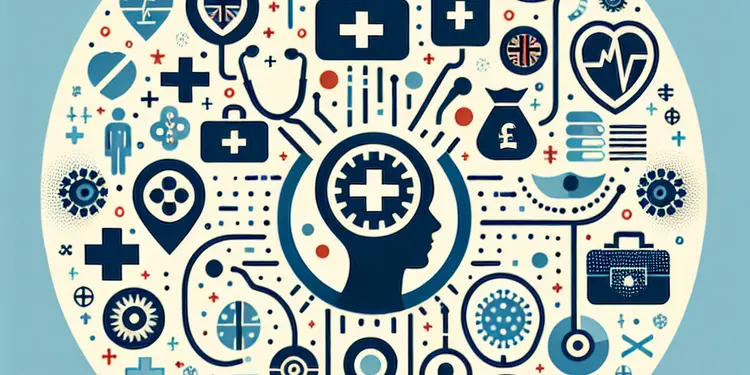
What kinds of specialists are involved in treating Huntington's disease?
Relevance: 69%
-
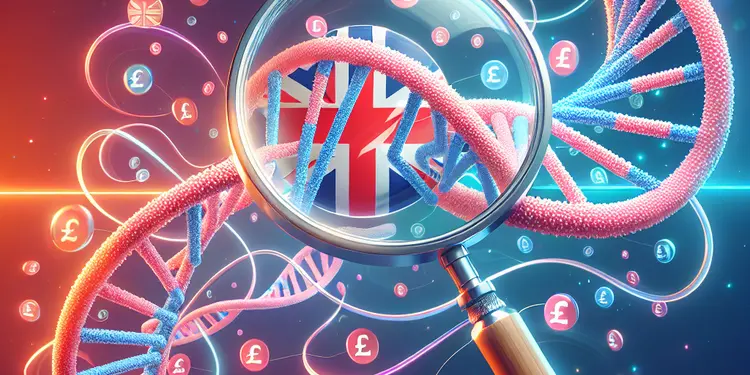
What is the role of genetic testing in Huntington's disease?
Relevance: 67%
-

At what age do symptoms of Huntington's disease typically appear?
Relevance: 67%
-

Can lifestyle changes help manage Huntington's disease?
Relevance: 64%
-

Are there treatments available for Huntington's disease?
Relevance: 56%
-
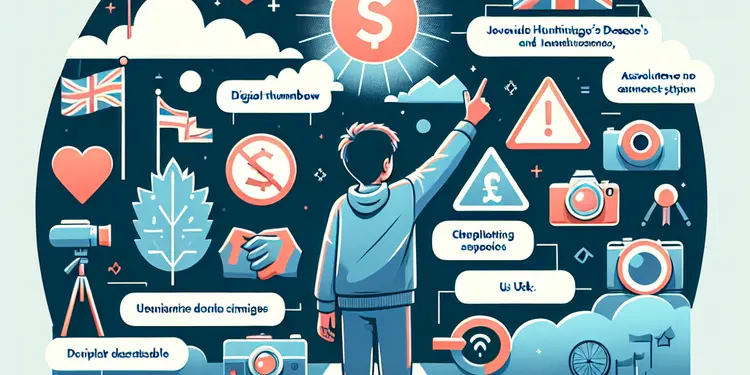
What is Juvenile Huntington's disease?
Relevance: 56%
-
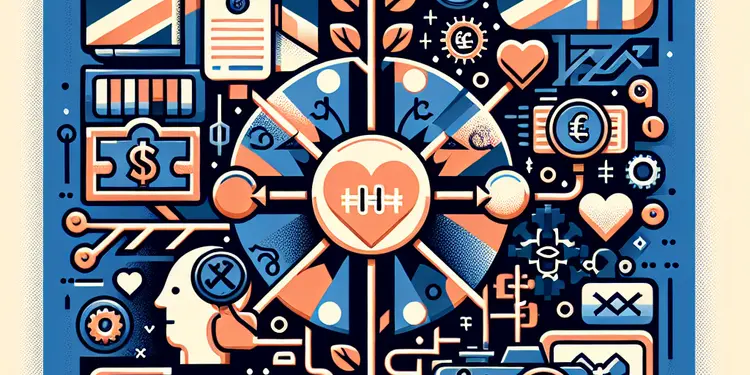
How is Huntington's disease inherited?
Relevance: 53%
-
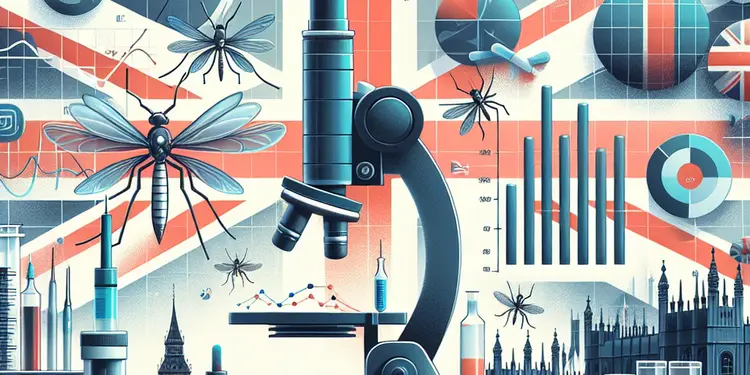
What research is being conducted on mosquito-borne diseases in the UK?
Relevance: 53%
-
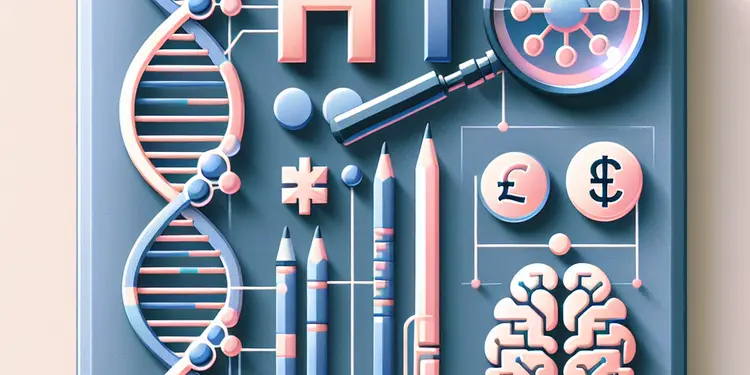
What role does the HTT gene play in Huntington's disease?
Relevance: 48%
-
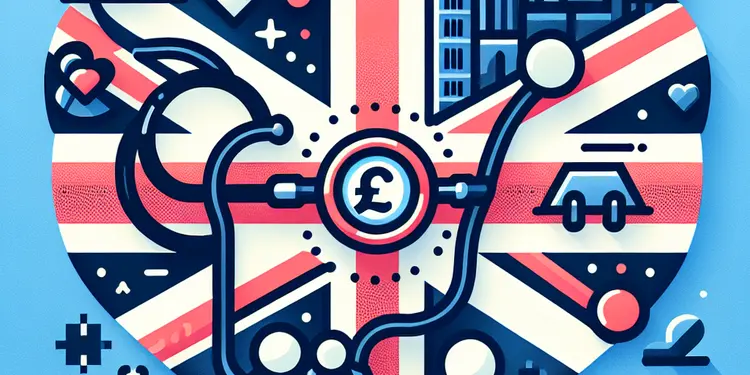
What support is available for families affected by Huntington's disease?
Relevance: 46%
-
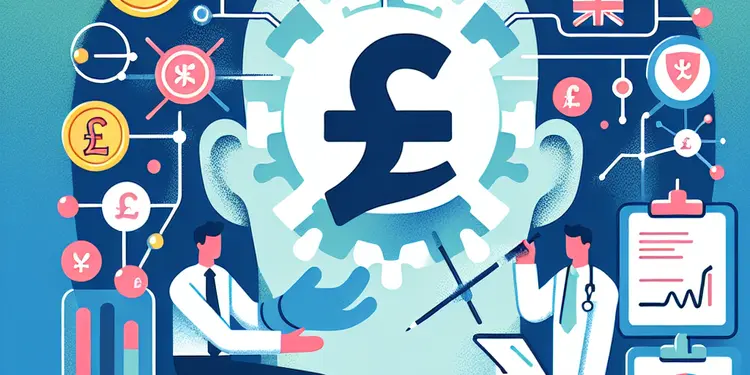
What research is being done on motor neurone disease?
Relevance: 39%
-
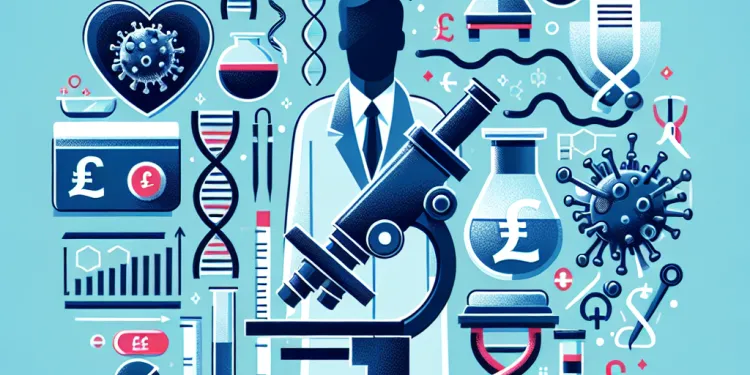
What research is being done on the Marburg virus?
Relevance: 37%
-

What global organizations are involved in Nipah Virus research?
Relevance: 36%
-
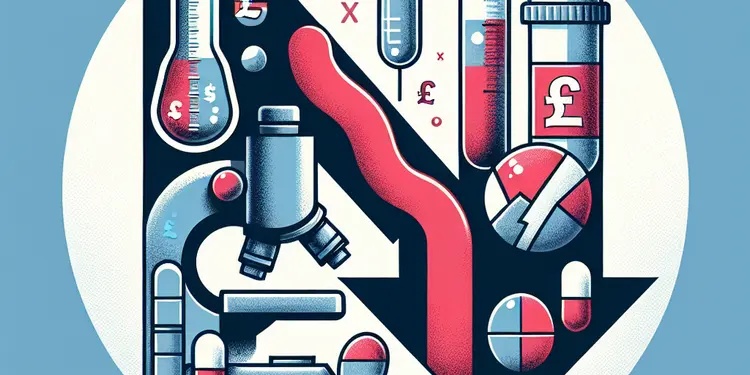
How significant is the reduction in funding for AIDS, Tuberculosis, and Malaria research?
Relevance: 35%
-
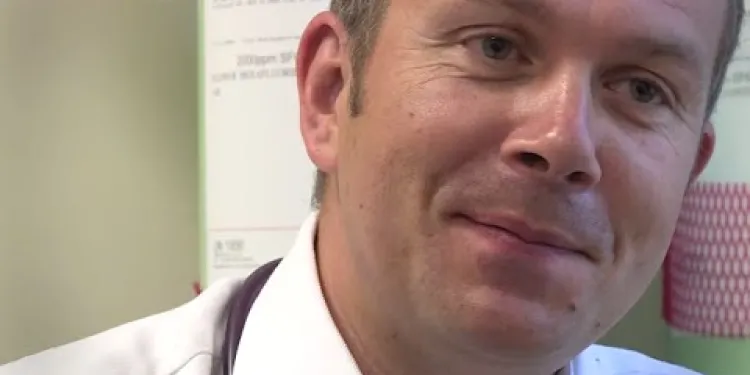
Idiopathic pulmonary fibrosis (IPF) research
Relevance: 35%
-

Why is the UK cutting funding to AIDS, Tuberculosis, and Malaria research?
Relevance: 35%
-
Is there research being done on mitochondrial disease?
Relevance: 35%
-

Is there a vaccine for Lyme disease?
Relevance: 32%
-
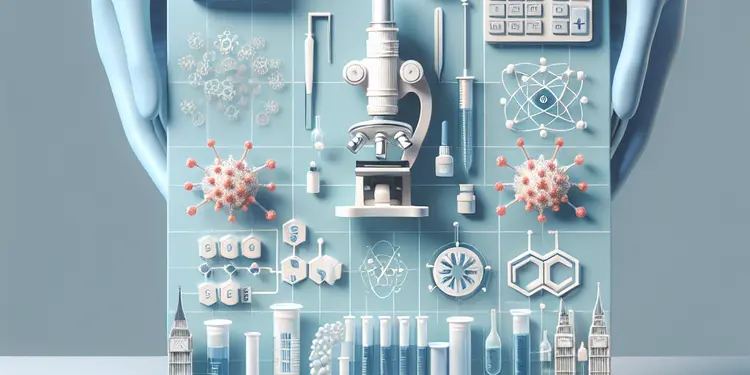
Has research been conducted on the Nimbus variant?
Relevance: 32%
-

Is there a cure for motor neurone disease?
Relevance: 32%
-

What is Mitochondrial disease?
Relevance: 31%
-
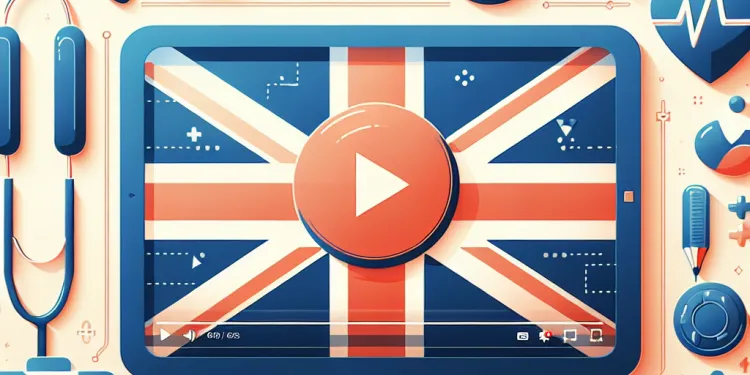
How common is Alzheimer's disease in the UK?
Relevance: 31%
-
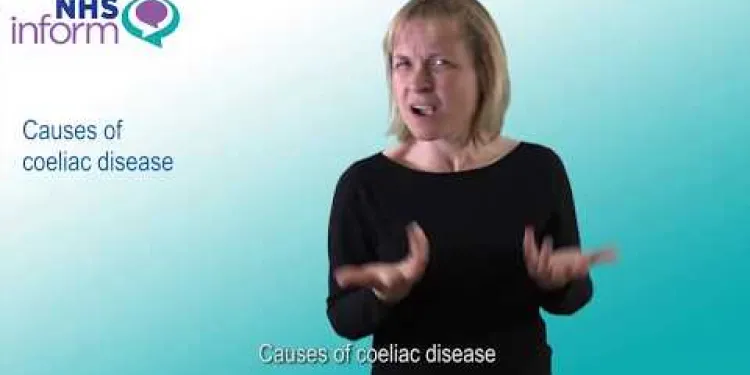
Causes of coeliac disease
Relevance: 31%
-
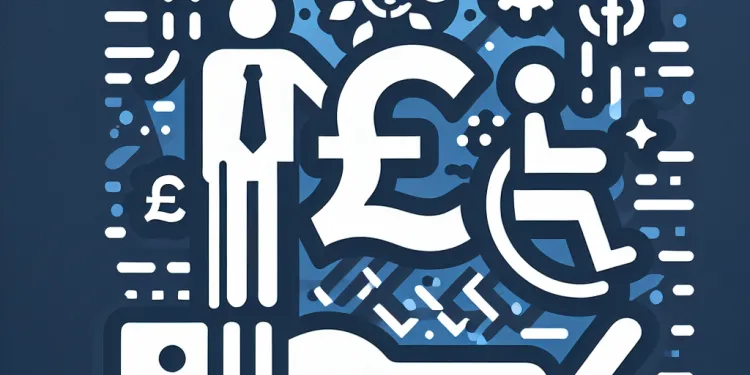
What is Parkinson's disease?
Relevance: 30%
-
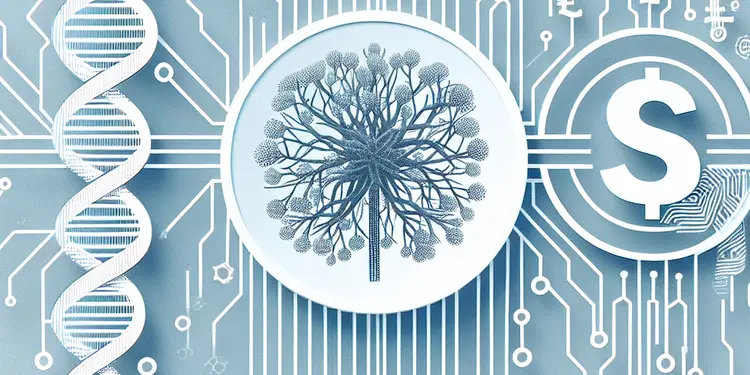
Is motor neurone disease hereditary?
Relevance: 30%
-

What causes motor neurone disease?
Relevance: 30%
-

What is motor neurone disease?
Relevance: 29%
-
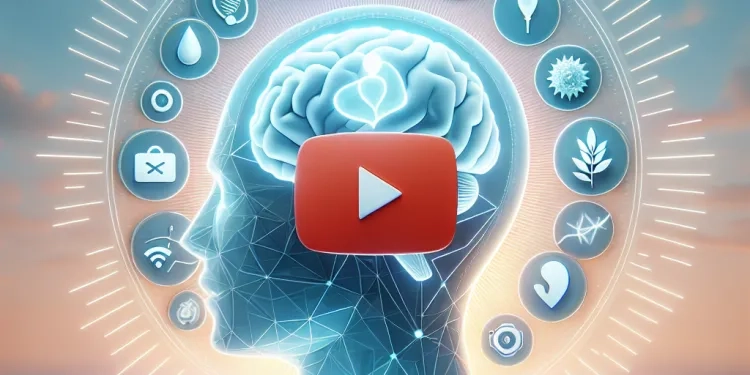
Can Alzheimer's disease be prevented?
Relevance: 29%
-
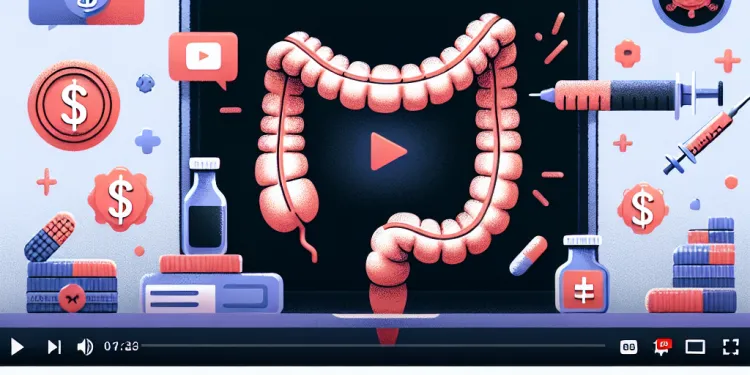
What causes Crohn's disease?
Relevance: 29%
Introduction to Huntington's Disease
Huntington's disease is a progressive neurodegenerative disorder caused by a genetic mutation. It leads to the gradual breakdown of nerve cells in the brain, affecting movement, cognition, and emotions. Research is crucial in understanding the disease, developing treatments, and ultimately finding a cure.
Current Research Initiatives
In the UK and globally, numerous research initiatives are underway to unravel the complexities of Huntington's disease. These include studies focused on understanding the genetic underpinnings, as well as the development of potential therapeutic strategies.
Genetic Studies
Genetic research is central to Huntington's disease studies. Researchers are exploring the mechanisms by which the CAG repeat expansion in the HTT gene leads to neurodegeneration. This mutation results in the production of a toxic protein that accumulates in the brain, causing cell death. By understanding these processes, scientists aim to identify targets for new treatments.
Drug Development and Trials
Several experimental drugs are currently in clinical trials. These trials are testing compounds that may reduce the production of the mutant huntingtin protein or enhance cellular processes to cope with the increased burden. For instance, the antisense oligonucleotides (ASOs), which target and degrade messenger RNA for the mutant protein, are a promising area of research.
Gene Silencing Techniques
Gene silencing techniques, such as RNA interference and CRISPR-based approaches, are being investigated. These methods aim to reduce or eliminate the expression of the mutant gene, potentially halting disease progression. In the UK, research groups are actively working on refining these technologies to ensure their safety and effectiveness.
Neuroprotection and Neuroregeneration
Another strand of research involves neuroprotective strategies aimed at safeguarding neurons from damage. This includes the study of compounds that might promote cell survival or enhance neuroplasticity. Additionally, regenerative medicine approaches are being explored, such as the use of stem cells to replace lost neurons and restore brain function.
Biomarker Discovery and Early Diagnosis
Identifying reliable biomarkers for early diagnosis and progression tracking is crucial. Researchers are working on biomarkers that can be detected in blood or cerebrospinal fluid, which could help in the early detection of the disease before significant symptoms appear. This would allow interventions to be administered earlier in the disease course.
Collaborative Research and Future Prospects
Collaborative efforts, both within the UK and internationally, are vital in driving research forward. Organisations like the Huntington's Disease Association in the UK play a key role in funding and supporting innovative research projects. The ultimate aim of these ongoing efforts is to develop effective treatments and, eventually, a cure for Huntington's disease.
Introduction to Huntington's Disease
Huntington's disease is a serious illness that gets worse over time. It is caused by a problem in the genes. This illness makes nerve cells in the brain break down slowly. This affects how people move, think, and feel. Scientists are working hard to understand this disease, find treatments, and hopefully a cure one day.
Current Research Initiatives
Many scientists in the UK and around the world are studying Huntington's disease. They want to understand it better and find ways to help people with the disease. They are looking at the genes and trying to create new treatments.
Genetic Studies
Studying genes is very important for understanding Huntington's disease. Scientists are looking at how a change in a gene called HTT harms the brain. This change makes a bad protein that builds up and kills brain cells. By learning more, scientists hope to find new treatments.
Drug Development and Trials
There are new medicines being tested to help people with Huntington's disease. These are called clinical trials. Some medicines may help reduce the bad protein or help the brain handle the damage better. A special type of medicine, called ASOs, is showing promise by stopping the bad protein from being made.
Gene Silencing Techniques
Scientists are using new ways to stop the bad gene from working. These are called gene silencing techniques. They use methods like RNA interference and CRISPR. This could stop the disease from getting worse. Scientists in the UK are working to make sure these methods are safe and effective.
Neuroprotection and Neuroregeneration
Another research area is protecting brain cells from getting hurt. Scientists are looking at substances that might help brain cells live longer and work better. They are also studying ways to replace lost brain cells using stem cells to help the brain heal.
Biomarker Discovery and Early Diagnosis
Finding ways to spot the disease early is important. Scientists are looking for markers in blood or brain fluid to detect the illness before it gets too bad. This could help start treatment earlier.
Collaborative Research and Future Prospects
Working together is key to finding answers. In the UK and around the world, groups like the Huntington's Disease Association support research. The hope is to find treatments that work and, one day, a cure for Huntington's disease.
Frequently Asked Questions
What is Huntington's disease?
Huntington's disease is a genetic disorder that causes the progressive degeneration of nerve cells in the brain, affecting movement, cognition, and behavior.
What causes Huntington's disease?
Huntington's disease is caused by a hereditary defect in a single gene. It is inherited in an autosomal dominant pattern, meaning a child needs only one copy of the defective gene to develop the disorder.
What kind of research is being done to understand Huntington's disease?
Research on Huntington's disease includes studies on the genetic basis of the condition, the biochemical pathways involved, and the search for biomarkers for early detection and progression tracking.
Are there any promising treatments for Huntington's disease in development?
Several promising treatments are under investigation, including gene therapy approaches, antisense oligonucleotide treatments, and drugs targeting specific pathways implicated in the disease.
What is the role of gene therapy in Huntington's disease research?
Gene therapy aims to directly address the genetic defect causing Huntington's by either delivering a healthy copy of the gene or by silencing the mutant gene using various techniques.
Can lifestyle changes impact the progression of Huntington's disease?
While lifestyle changes cannot prevent or cure the disease, they may help manage symptoms and improve quality of life. Research is ongoing to better understand this area.
How are animal models used in Huntington's disease research?
Animal models, such as transgenic mice, are used to study the disease mechanisms and test potential therapies before they are considered for human trials.
What are antisense oligonucleotides, and how do they relate to Huntington's disease?
Antisense oligonucleotides (ASOs) are short DNA-like molecules designed to bind to RNA and modify gene expression. In Huntington's, they may be used to reduce the production of the mutant huntingtin protein.
Is there any research on biomarkers for Huntington's disease?
Yes, researchers are looking for biomarkers in blood, cerebrospinal fluid, and imaging techniques that can help detect the disease early and monitor its progression.
What is the Huntington Study Group (HSG) and what are its goals?
The Huntington Study Group is an international network of researchers focused on clinical trials and studies to find treatments that make a difference for Huntington's patients.
Have any drugs been approved for Huntington's disease?
While there are no drugs that can cure Huntington's, some medications are approved to help manage symptoms such as chorea and psychiatric disorders.
What role do neuroimaging studies play in Huntington's disease research?
Neuroimaging studies use technologies like MRI and PET scans to observe brain changes in Huntington's patients, improving our understanding of disease progression and aiding in treatment evaluation.
How is CRISPR technology being explored in the context of Huntington's disease?
CRISPR technology is being researched as a potential way to edit or correct the mutant huntingtin gene, which could prevent or reverse the disease.
What is the function of the huntingtin protein in the body?
The normal huntingtin protein is involved in several cellular processes, such as intracellular transport, signaling, and maintaining neuronal health.
Are there any clinical trials for Huntington's disease currently recruiting participants?
Yes, clinical trials are often recruiting participants to test new therapies. These trials are crucial for regulatory approval and broader use if successful.
How do psychological interventions help in managing Huntington's disease?
Psychological interventions, such as cognitive behavioral therapy, can help manage depression, anxiety, and other emotional or cognitive challenges faced by patients.
What are some non-pharmacological approaches being studied for Huntington's disease?
Non-pharmacological approaches include physical therapy, occupational therapy, dietary changes, and exercise programs, aimed at improving motor function and overall well-being.
How important is early diagnosis in Huntington's disease?
Early diagnosis is crucial as it allows for earlier intervention, better management of symptoms, and participation in clinical trials that could slow disease progression.
What support resources are available for families affected by Huntington's disease?
Support resources include counseling, support groups, and educational materials provided by organizations like the Huntington's Disease Society of America and the European Huntington's Disease Network.
Can genetic counseling help families at risk of Huntington's disease?
Yes, genetic counseling provides information and support to families at risk, helping them understand inheritance patterns, testing options, and implications for family planning.
What is Huntington's disease?
Huntington's disease is an illness that affects the brain. It can make it hard for people to move, think, and control their feelings. The disease gets worse over time.
How can we help?
- Simple Words: Use easy words and clear sentences when talking about it.
- Visual Aids: Use pictures or videos to explain things. This can make it easier to understand.
- Support Groups: Join groups where people can talk and share their feelings. It can help to meet others who know what it’s like.
- Expert Help: Doctors and therapists can give special help and advice.
Remember, Huntington's disease is something you don't have to face alone. There are people and tools to help along the way.
Huntington's disease is a problem that you get from your parents because of your genes. It makes the brain get worse over time. This affects how you move, think, and act.
What makes people get Huntington's disease?
Huntington's disease is an illness that makes a person's brain get sick. It happens because of a change in a special part of their body called a gene. This gene is like a tiny instruction book inside every person. If this book has a mistake, it can cause Huntington's disease.
People who have a parent with Huntington's disease can get it too. This is because parents pass their genes to their children. If a parent has the mistake in the gene, their child might get it as well.
Huntington's disease causes problems with moving, thinking, and feeling. It usually starts when a person is older. Doctors can help people with medicine and care to feel better.
If you or someone you know might have Huntington's disease, it is important to talk to a doctor. They can give advice and help with tests.
Techniques to understand better:
- Ask simple questions if you don't understand.
- Use pictures or videos to learn more.
- Talk with a helper or friend about what you read.
Huntington's disease comes from a problem in one gene that you get from your family. This problem can be passed down from parent to child. If one parent has the problem gene, just one copy of it can give the child the disease.
To help understand harder reading, you can try using pictures, watching videos, or talking with someone who knows about it.
What are scientists doing to learn about Huntington's disease?
Scientists are working hard to learn more about Huntington's disease. Here are some things they are doing:
1. **Studying the genes:** They look at the genes to find out more about this disease.
2. **Testing new medicines:** They try new medicines to see if they can help people with the disease.
3. **Learning from animals:** Scientists study animals to understand how the disease works.
4. **Talking to families:** They speak with families who have the disease to learn more about how it affects people.
Some tools and techniques that can help people understand better are:
- **Pictures and videos:** These can show how the disease works.
- **Simple words:** Using easy words can help make things clearer.
- **Talk with a doctor:** Doctors can explain what is happening in a way that is easy to understand.
People study Huntington's disease to learn more about it. They look at the genes that cause it. They study the body's chemicals that change. They try to find signs that show up early when someone gets this disease.
Is there any new medicine for Huntington's disease being made?
Huntington's disease is an illness that makes people very sick. Scientists are working hard to find new medicines that can help. These medicines are not ready yet, but they might be soon.
If you want to know more, you can:
- Ask a doctor to explain it to you.
- Look for videos that talk about Huntington's disease.
- Use picture books that show how the disease works.
Scientists are looking at new ways to help. They are trying treatments like changing genes, using special tiny molecules, and making new medicines. These can help make the body work better.
How can gene therapy help with Huntington's disease research?
Scientists are studying ways to fix genes to help people with Huntington's disease. This is called gene therapy.
Gene therapy might help stop or slow down this disease. It is early, and more research is needed.
If reading is hard, you can:
- Use audiobooks to listen to information.
- Ask someone to read with you.
- Use apps that read text out loud.
Gene therapy tries to fix the problem in the genes that causes Huntington's disease. It can do this by giving the body a healthy gene or by turning off the bad gene in different ways.
Can changes in how we live affect Huntington's disease?
Changes in how we live might help with Huntington's disease. Eating good food, exercising, and staying happy can help. Playing fun games and doing puzzles might also be good. Always listen to your doctor for help.
Changing how you live can't stop or fix the disease. But it can help you feel better and live a good life. Scientists are still studying this.
How do scientists use animals to study Huntington's disease?
Scientists study Huntington's disease by using animals like mice and rats. These animals have changes in their genes like people with Huntington's disease. Studying animals helps scientists learn how the disease works. It also helps them find new medicines. People who find reading hard can try using pictures and videos to help understand. Listening to information is also helpful.Scientists use animals like special mice to learn about diseases. These animals help them test new medicines to make sure they are safe before trying them on people.
What are antisense oligonucleotides, and how do they relate to Huntington's disease?
Antisense oligonucleotides are tiny bits of DNA or RNA.
They can stop bad genes from working.
Huntington's disease is a sickness you get from your parents.
It happens because of a bad gene.
Antisense oligonucleotides can help fix the bad gene in Huntington's disease.
This might help people feel better.
To understand more, you can use pictures or videos.
Talking to someone who knows about Huntington's disease can also help.
What are Antisense Oligonucleotides (ASOs)?
ASOs are tiny pieces that look like DNA. They are made to stick to RNA. This helps to change how genes work.
How can ASOs help in Huntington's?
In people with Huntington's, ASOs might be used to make less of the bad huntingtin protein. This can help feel better.
Helpful Tip: Use a dictionary or ask someone if you need help understanding words.
Are there any studies about signs of Huntington's disease?
Scientists look for signs, called biomarkers, to help find diseases like Huntington's. Biomarkers can be changes in the body that show if someone has a disease.
Simple tools like pictures or stories can help explain these tricky ideas.
Yes, scientists are studying different things in the body to find signs of illness. They look at blood, spinal fluid, and use pictures of the brain. These things can help find the disease early and see how it’s changing over time.
What is the Huntington Study Group (HSG) and what does it do?
The Huntington Study Group, or HSG for short, is a team of people working together. They want to help people with a disease called Huntington's. They study the disease to understand it better.
The goals of the HSG are:
- To learn more about Huntington's disease.
- To find new ways to help people with the disease.
Some tools and techniques that might help you understand this better:
- Use pictures or videos to see what Huntington's disease is.
- Ask someone to explain the hard words to you.
The Huntington Study Group is a group of people from around the world. They do research to help find medicine or treatments for people with Huntington's disease. They want to make life better for these patients.
Are there any medicines for Huntington's disease?
Huntington's disease is a sickness that affects the brain. Some medicines can help people with this sickness feel a bit better. But, there is no medicine yet that can cure Huntington's disease.
If you or someone you know has trouble reading, using tools like pictures or videos can help. You can also ask someone for help to understand better.
There are no medicines that can fix Huntington’s disease. But, there are some medicines that can help with the signs of the illness, like moving a lot without control or feeling very upset or worried.
How do brain scans help us learn about Huntington's disease?
Doctors use special pictures of the brain, like MRI and PET scans, to look at how the brain changes in people with Huntington's disease. This helps doctors learn more about how the disease gets worse and how well treatments are working.
How are scientists using CRISPR to study Huntington's disease?
Scientists are using a tool called CRISPR to learn more about Huntington's disease.
CRISPR helps scientists change genes. Genes are like instructions in our bodies.
Huntington's disease happens because of a problem in a gene. CRISPR might help fix or study this problem.
To learn more, you can use picture books or videos about CRISPR.
You can also ask a teacher or a friend to help explain it.
Scientists are looking at something called CRISPR. It is a tool that might help fix a broken gene called the mutant huntingtin gene. If they can fix this gene, it might stop the disease or make it better.
What does the huntingtin protein do in the body?
The body has something called the huntingtin protein.
This protein is important because it helps brain cells stay healthy.
The protein also helps with moving and thinking.
If you want to understand better, you can:
- Ask someone to explain it to you.
- Use pictures to help you learn.
- Watch a video about it.
The normal huntingtin protein helps the cells in our body work properly. It helps move things inside cells, sends messages, and keeps our brain cells healthy.
Can I join a study for Huntington's disease right now?
Scientists are doing studies to help people with Huntington's disease. These are called clinical trials. They need people to help with these studies.
Would you like to know if you can join one?
Here are some ideas to help you:
- Ask your doctor if they know about any studies.
- Look online for Huntington's disease studies.
- Ask a family member or friend to help you search.
Yes, clinical trials are looking for people to help test new treatments. These tests are important to make sure the treatments are safe and work well before everyone can use them.
How can talking treatments help people with Huntington's disease?
People with Huntington's disease can feel worried or sad. Talking treatments can help. You speak with someone who listens and helps you feel better.
Here are ways these treatments can help:
- Help you talk about your feelings
- Teach you ways to feel less worried
- Help you solve problems
Some tools that can help you are:
- Listening to calming music
- Drawing pictures to show how you feel
- Writing in a diary
Talking treatments can make you feel happier and calmer.
Talking therapies can help with feeling sad, worried, or having other hard feelings. One type of talking therapy is called cognitive behavioral therapy. This therapy can help people feel better when they have big feelings.
What are other ways to help Huntington's disease without using medicine?
There are ways to help that don't involve medicine. These include:
- Physical therapy: This helps improve movement and strength. - Occupational therapy: This helps with daily tasks and activities. - Healthy eating: Changing what you eat to feel better. - Exercise programs: Doing exercises to make you stronger and feel good.
All these things can help you move better and feel happier.
Why is it good to know about Huntington's disease early?
Huntington's disease is a sickness. It makes the brain stop working well. It can make you move and think differently.
Finding out about the sickness early is good. It helps doctors start helping you sooner. You can learn how to take care of yourself better.
Here are some tips to help:
- Go to the doctor if you feel different.
- Talk to your family about your health.
- Write down any changes in how you feel or move.
Finding out about an illness early is very important. It means doctors can start helping sooner and control the symptoms better. It also means you can take part in tests that might help slow down the illness.
What help can families get if someone has Huntington's disease?
If someone in your family has Huntington's disease, there are places you can get help:
- Doctors and Nurses: They can explain the disease and tell you what to do.
- Support Groups: These are people who know about Huntington's disease. You can talk and share with them.
- Online Information: Websites and videos can help you learn more.
- Counselors: They can help you with feelings and worries.
These things can help you feel better and learn more about Huntington's disease.
There are places and people that can help you. You can talk to a counselor or join a support group. You can also read books or watch videos to learn more. Groups like the Huntington's Disease Society of America and the European Huntington's Disease Network can provide these resources.
Can talking to a gene doctor help families with Huntington's disease?
Families who might get Huntington's disease can talk to a special doctor. This doctor explains about the disease and how it can pass in families.
Here are some ways talking to a gene doctor can help:
- They tell you if someone in the family might get the disease.
- They explain how the disease works and what it does to the body.
- They help you make good choices about health and family.
- They give support and advice to everyone in the family.
Tools like pictures, simple words, and videos can help explain things better. Using these tools with the doctor can make everything easier to understand.
Genetic counseling helps families. It gives them information and support. Families learn about how genes are passed down, what tests can be done, and how this affects having children.
Useful Links
This website offers general information and is not a substitute for professional advice.
Always seek guidance from qualified professionals.
If you have any medical concerns or need urgent help, contact a healthcare professional or emergency services immediately.
Some of this content was generated with AI assistance. We’ve done our best to keep it accurate, helpful, and human-friendly.
- Ergsy carfully checks the information in the videos we provide here.
- Videos shown by Youtube after a video has completed, have NOT been reviewed by ERGSY.
- To view, click the arrow in centre of video.
- Most of the videos you find here will have subtitles and/or closed captions available.
- You may need to turn these on, and choose your preferred language.
- Go to the video you'd like to watch.
- If closed captions (CC) are available, settings will be visible on the bottom right of the video player.
- To turn on Captions, click settings .
- To turn off Captions, click settings again.
More Items From Ergsy search
-

What research is being done on Huntington's disease?
Relevance: 100%
-

Is Huntington's disease fatal?
Relevance: 83%
-

Can Huntington's disease be cured?
Relevance: 82%
-

Can Huntington's disease be prevented?
Relevance: 81%
-

What is Huntington's disease?
Relevance: 80%
-

What causes Huntington's disease?
Relevance: 78%
-

How is Huntington's disease diagnosed?
Relevance: 74%
-

What are the symptoms of Huntington's disease?
Relevance: 73%
-

How does Huntington's disease affect movement?
Relevance: 72%
-

How does Huntington's disease affect emotions?
Relevance: 72%
-

How does Huntington's disease affect cognition?
Relevance: 71%
-

What kinds of specialists are involved in treating Huntington's disease?
Relevance: 69%
-

What is the role of genetic testing in Huntington's disease?
Relevance: 67%
-

At what age do symptoms of Huntington's disease typically appear?
Relevance: 67%
-

Can lifestyle changes help manage Huntington's disease?
Relevance: 64%
-

Are there treatments available for Huntington's disease?
Relevance: 56%
-

What is Juvenile Huntington's disease?
Relevance: 56%
-

How is Huntington's disease inherited?
Relevance: 53%
-

What research is being conducted on mosquito-borne diseases in the UK?
Relevance: 53%
-

What role does the HTT gene play in Huntington's disease?
Relevance: 48%
-

What support is available for families affected by Huntington's disease?
Relevance: 46%
-

What research is being done on motor neurone disease?
Relevance: 39%
-

What research is being done on the Marburg virus?
Relevance: 37%
-

What global organizations are involved in Nipah Virus research?
Relevance: 36%
-

How significant is the reduction in funding for AIDS, Tuberculosis, and Malaria research?
Relevance: 35%
-

Idiopathic pulmonary fibrosis (IPF) research
Relevance: 35%
-

Why is the UK cutting funding to AIDS, Tuberculosis, and Malaria research?
Relevance: 35%
-
Is there research being done on mitochondrial disease?
Relevance: 35%
-

Is there a vaccine for Lyme disease?
Relevance: 32%
-

Has research been conducted on the Nimbus variant?
Relevance: 32%
-

Is there a cure for motor neurone disease?
Relevance: 32%
-

What is Mitochondrial disease?
Relevance: 31%
-

How common is Alzheimer's disease in the UK?
Relevance: 31%
-

Causes of coeliac disease
Relevance: 31%
-

What is Parkinson's disease?
Relevance: 30%
-

Is motor neurone disease hereditary?
Relevance: 30%
-

What causes motor neurone disease?
Relevance: 30%
-

What is motor neurone disease?
Relevance: 29%
-

Can Alzheimer's disease be prevented?
Relevance: 29%
-

What causes Crohn's disease?
Relevance: 29%


